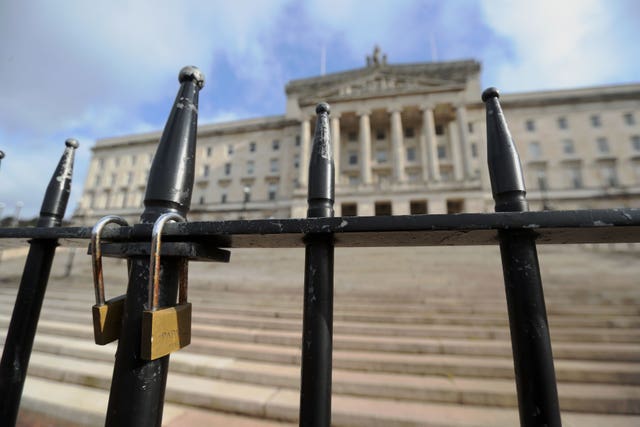Deal preserving Common Travel Area after Brexit signed
It allows citizens of the UK and Ireland to cross the border and move freely between Britain and the Republic of Ireland.

A deal preserving the Common Travel Area (CTA) between the UK and Ireland after Brexit has been signed.
The memorandum of understanding between the two governments allows citizens of both countries to cross the Irish border and move freely between Great Britain and the Republic of Ireland.
It allows cross-border access to education and healthcare.
The non-legally binding understanding was signed by senior UK and Irish ministers at a Cabinet Office meeting of the British-Irish Intergovernmental Conference in London on Wednesday.
The conference was part of a renewed bid to restore devolved powersharing at Stormont, initiated after the murder of journalist Lyra McKee in Londonderry last month.
Political working groups set up to address contested issues at the heart of the Stormont impasse, such as the Irish language, began operating on Wednesday.
The CTA predates the UK and Ireland’s membership of the EU.
There was no legally binding international agreement which established its terms and it was largely based on trust.
The memo is an attempt to reinforce that understanding.
It was signed by the UK’s de facto deputy prime minister David Lidington and Irish deputy premier Simon Coveney, with Northern Ireland Secretary Karen Bradley and Irish justice minister Charlie Flanagan in attendance.

Mr Lidington said: “This memorandum of understanding highlights the value both of our governments place on the CTA – a long-standing, cherished set of arrangements that have real significance in people’s day-to-day lives.
“Our message to Irish citizens in the UK is that your rights will not change.
“You will still be able to move freely between Ireland, the UK and the islands. You will still be able to work, study, draw your pension and access social security and public services in the UK.
“Above all, you will be welcome.
“And we welcome the similar commitment the government of Ireland makes to British citizens in Ireland.
“Today’s announcement reflects close work with Ireland over the last two years to ensure that the CTA and associated rights are maintained, no matter the terms of the UK’s withdrawal from the EU.
“This is the culmination of that good progress.”
Mr Coveney said: “Today marks an important moment for the long-standing Common Travel Area arrangement between our two countries.
“The CTA has provided rights and privileges to Irish and British citizens for nearly a century.
“However, it has not before been formalised in this way.
“Many of us have personal experience of the CTA in our daily lives.
“This MOU demonstrates and confirms the commitment of both governments to maintaining the CTA in all circumstances.
“It provides clarity and assurance for citizens of both countries that the way in which British and Irish citizens can live and work freely across these islands will not change.”
The Tanaiste added: “The CTA is a practical demonstration of the enduring strength of the British-Irish relationship and of our people to people ties.
“I want to assure British citizens living in Ireland that they are welcome and truly valued here, as is their contribution to Ireland and Irish life.
“British citizens will continue to be able to travel freely, live, study and work in Ireland into the future.
“I welcome the similar commitment and welcome of the UK Government for Irish citizens in Britain.”
The intergovernmental conference is provided for by the 1998 Good Friday Agreement and facilitates bilateral co-operation between Britain and Ireland.
It was resurrected after seldom being used because of the absence of a breakthrough at Stormont.
The fresh powersharing talks process began in Belfast on Tuesday.

Leaders of the five main parties acknowledged mounting public impatience and anger at a stalemate that has left the region without a functioning devolved government for more than two years.
They held a short round-table meeting at Stormont House on Tuesday afternoon for the first exchanges of a new process initiated by the UK and Irish governments.
The process will involve agenda-setting and stock-taking meetings between the five leaders and two governments at least once a week, with five working groups to focus on the detail of key disputes at the heart of the deadlock.
The last DUP/Sinn Fein-led powersharing coalition imploded in January 2017 when the late Martin McGuinness quit as Sinn Fein deputy first minister amid a row about a botched green energy scheme.
The fallout over the Renewable Heat Incentive (RHI) was soon overtaken by disputes over the Irish language, the region’s ban on same-sex marriage and the toxic legacy of the Troubles.
Six previous initiatives to restore devolution failed to find consensus.





